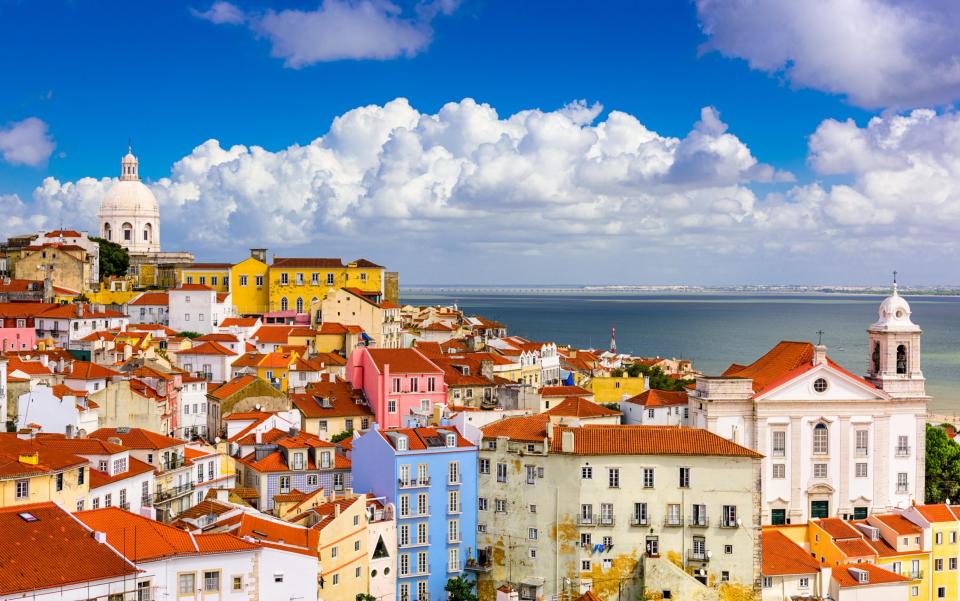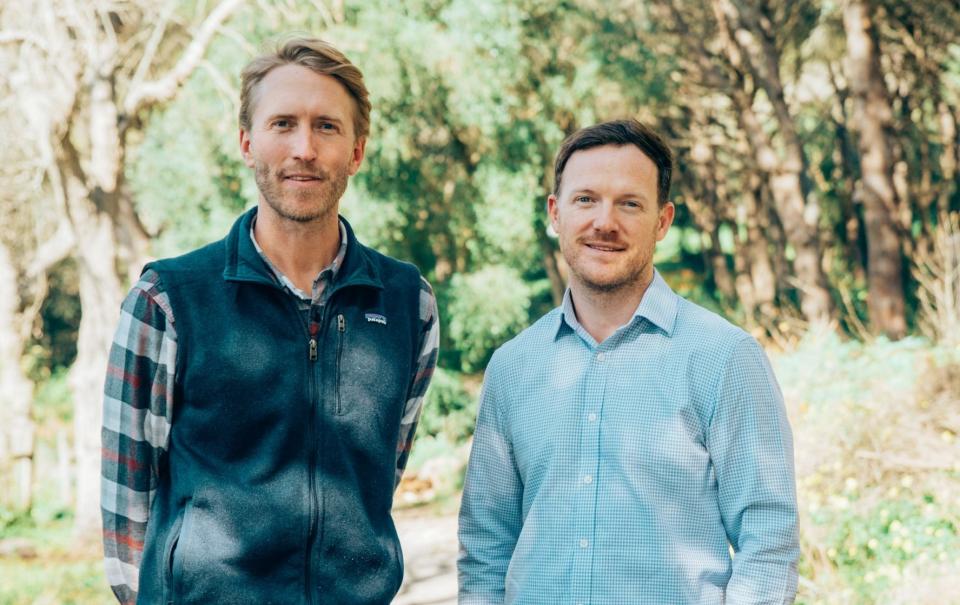Portugal has axed the golden visa – here’s how to get a ‘green’ one and the same tax perks

Thousands of British expats used Portugal’s property scheme to get citizenship and tax advantages for themselves and their families.
But the scheme, which required investors to buy €500,000 (£428,450) worth of real estate, has now been axed after fears it was driving up property prices and doing little to help the locals.
Yet the Portuguese government is still happy to hand out the coveted golden visas to those willing to invest elsewhere in the country.
It comes as there has been a stampede in the UK to snap up European passports since Brexit, with people wanting to live, work, study and move unhindered around the Schengen zone.
The surge has continued, with 3,200 applications in 2023 – double from the previous year.
Now 2024 looks like another bumper year globally due to ongoing instability and an unprecedented number of landmark elections. The Plan B passport has never looked more enticing.
Portugal is still one of the most popular destinations as it comes with a high quality of life, low crime rate, rich history, great food and beautiful beaches and countryside.
Expats who move to Portugal also receive a flat tax of 10pc on pensions from a foreign source, as well as a tax exemption on foreign-source income.
The country first launched its golden visa programme in 2012, quickly winning fans for its easily-fulfilled requirement for you to spend just seven days a year in Portugal until you have full citizenship and passport (by comparison, in Greece you must spend three years there over a seven-year period, averaging 156 day per year).
The rub was that while there are multiple ways to procure a golden visa, the most popular – globally and in Portugal – was always through real estate purchase.
Portugal cancelled that as an option last October because, while property had mostly proved a reliable option for the investor with a guaranteed return through rental and/or eventual property sale, it inflated house prices and rents.

Instead, the Portuguese government has now flagged up a list of four alternative golden visa-eligible investment opportunities that grant you residency and, after five years of maintaining it and adhering to requirements, you can apply for permanent residency or Portuguese citizenship.
The cheapest option, the cultural production golden visa, offers investors the chance to donate €250,000 (or €200,000 in low-density areas) into a pre-approved project of national importance. This could perhaps be helping to fund a Portuguese movie or the restoration of a national monument. Although in most cases it’s a donation, so you won’t get it back.
Another option is to invest at least €500,000 into research carried out by public or private scientific research institutions.
You can also get a golden visa by starting a company that employs at least 10 locals (or eight in a low-density area).
Another way is to invest at least €500,000 in government-approved private equity or venture capital funds for five years.
There are around 50 funds available and they include high-risk, medium- and low-risk options. Investors should expect to pay fees and could face losing their golden visa or paying an exit charge if they want to get their money out early.
These include Pela Terra, a project and investment fund launched in 2020 by Wiltshire-born entrepreneur Alex Lawry-White and his Ohio-born business partner Nathan Hadlock.

It focuses on the transition of Portuguese agriculture (olives, nuts and grapes) from conventional to sustainable practices, improving soil and therefore crop and food quality, and repairing the damage caused by pollution, super-intensive agriculture and soil erosion due to climate change.
Other golden visa investment opportunities include Aquila Wheels FCR – a fund that invests in classic cars.
Another option is Mar Ventures, a fund that invests in the Portuguese “blue economy”.
Investors are expected to invest at least €500,000 as a one-off sum, with returns paid over the duration of the investment (which ends up being closer to seven years when allowing for the citizenship application processing time).
Plus, in Portugal, returns on funds like this are taxed at 0pc and thanks to the Portugal-UK double taxation treaty, UK tax residents aren’t taxed on those profits in Britain.
From the time you put in the €500,000 until you are granted citizenship, you have residency status in Portugal, which allows the same freedoms to live in Portugal as the Portuguese.
The citizenship that follows then grants full EU freedom of movement to live, work and study anywhere in the 27 EU countries. You are required to learn basic Portuguese (but you can take the test as many times as you need to and the pass mark is reassuringly low).

Pela Terra’s first fund is fully subscribed, has 118 investors and has raised €35m, so now they’ve launched a second, which will have two-to-three times the number of investors.
With a few mature projects and a proven track record on offer, Pela Terra is currently the most commercial option on the market. The US and the UK account for 70pc of its investors to date.
“It all began with Brexit,” says London-based legal researcher Thomas Smith*, who started investing in Pela Terra with his wife Anne, both in their late 30s, in 2021.
“I worked at a European company. The day after the count, literally nobody turned up for work, we were all so upset. Anne and I have always thought of ourselves as Europeans.
“We also love Portugal and quickly realised its golden visa offered the most practical route to Europe. I liked the fact you have to learn the language so are personally investing culturally in the country you want to gain citizenship in.”
For the Smiths, sustainability is really important and if someone asks them about investing in Portugal, they are proud to be able to explain it’s not just another Airbnb. What’s also important are the opportunities.
“I work a lot with universities so I’m very aware of all the grants that are no longer available to our educational institutions after Brexit,” says Smith. “It’s important to us that when our children grow up, they have access to the opportunities of Europe and also to its intellectual perspectives.”
Lawry-White understands that most smallholders in Portugal can’t afford to just switch to sustainable farming methods, but they aren’t his target.
“We are doing this at scale, so we buy large tracts of secure farmland from big companies and very old landed families, which gives us enough guaranteed income (and therefore security for our investors) while also employing a team of ecologists and environmental scientists who are working away on the challenges like carbon capture, water use and soil health – the things which impact the quality of the food.”
For Danny Stewart*, a 41-year old Scottish businessman in the tech world who invested in Pela Terra in 2022, says: “The golden visa always seemed like a potential path forward. But I was concerned about contributing to gentrification and displacement in communities I knew little about with the property route. Investing in agriculture also felt like a smart move from a financial perspective, in terms of recent growth in Portugal.”
Across the Pond, California-based impact investor Erica Berger, who is in her late 30s and started investing in Pela Terra in 2021, fell in love with Portugal while studying in Spain in 2008. She was impressed by the young people she encountered, who were fluent in multiple languages and tuned in to the wider world. She is pragmatic about her drive to get a golden visa: to be able to live wherever and for however long she wants.

“I see Portugal as this Petri dish for other places without enough water, that are hot, dry and arid and have an ageing population of farmers,” she says. “In the US, over two-thirds of the farmers are over 65. Who’s going to farm the land when they’re gone?
“It’s about encouraging the next generation of would-be farmers to learn how to farm from a regenerative perspective and getting more people like me to invest in it.”
*Not their real names
Have you invested to get a golden visa in Portugal? Email money@telegraph.co.uk

 Yahoo Finance
Yahoo Finance 